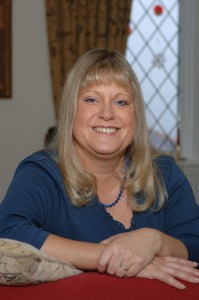Raising awareness of cultural heritage through the writings of Lady Anne Cliffor
Research led by Dr Jessica Malay into Lady Anne Clifford and her Great Books of Record has led to wide-ranging new awareness of this key figure in regional history, women’s writing and political and cultural engagement. The work has helped to raise debate and understanding of the era in which she lived, by featuring in an exhibition, a series of public lectures and radio and newspaper pieces. By raising awareness in this way the research has challenged cultural and gender stereotypes, generating local and national interest in Lady Anne Clifford’s life, her achievements and her influence on literature and society.
Aristocrat, feminist and writer
Lady Anne Clifford, the 17th-century aristocrat whose fight for equal land rights is sometimes cited as a milestone in feminism, has become central to the study of early modern women’s writing. During her lifetime – she was born in 1590 and died in 1676 – her influence was felt both nationally, through a network of relationships with leading figures, and regionally, through her administration of large parts of the North of England. In recent years historians and literary scholars have become increasingly interested in her life and work and their contribution to the larger emerging picture of the period.
Transcribing a lifetime’s work
Led by Dr Jessica Malay and funded by the Leverhulme Trust, this project has made possible the transcribing and editing of Lady Anne Clifford’s Great Books of Record. The books contain a 600,000 word history of the trials and triumphs of her family dynasty over six centuries and her own landmark legal struggle – in defiance of James I, Oliver Cromwell, her father and her husbands – to inherit the Cliffords’ vast estates in Cumbria and Yorkshire, including five castles and a number of villages.
Challenging gender and culture stereotypes
Drawing on rich narrative evidence of how they circumvented male authority to participate more fully in society, the research has challenged the notion that women in the 16th and 17th centuries lacked any power or control over their lives. The study has also questioned standard assumptions regarding family networks, the interaction of lords and tenants and other aspects of more than 500 years of social and political life in Britain. Most specifically, it has made for a better understanding of both the culture of the period and the ways in which past social constructions continue to inform present-day cultural attitudes.
Making space for new exhibitions
The research has generated renewed public interest in Lady Anne in what she always termed ‘the lands of my inheritance’ – the vast areas of Craven; Yorkshire and Westmorland; Cumbria, in which she continues to be revered in folk memory. It has resulted in an exhibition of the Great Books and the Great Picture, a triptych commissioned by Lady Anne in 1646. Running from May to September in 2012, the exhibition attracted over 7600 visitors to the Abbot Hall Art Gallery in Kendal, Cumbria.

Spotlight
Dr Jessica Malay
Dr Jessica Malay is a leading scholar in the field of early modern women, with much of her work focusing on how women’s writing reflected complex constructions of social space and challenged the influential forces of their environment. Her work sheds new light on the issues women faced such as concepts of private ownership and property and the social restrictions faced in Renaissance England, publishing books on the writings of renaissance women and particularly Mistress Mary Hampson.
Spring/Summer 2014 Issue
Return to the home page for the Spring/Summer 2014 Issue of Discover.
Next article
Improving machine tool accuracy and using virtual reality programmes.